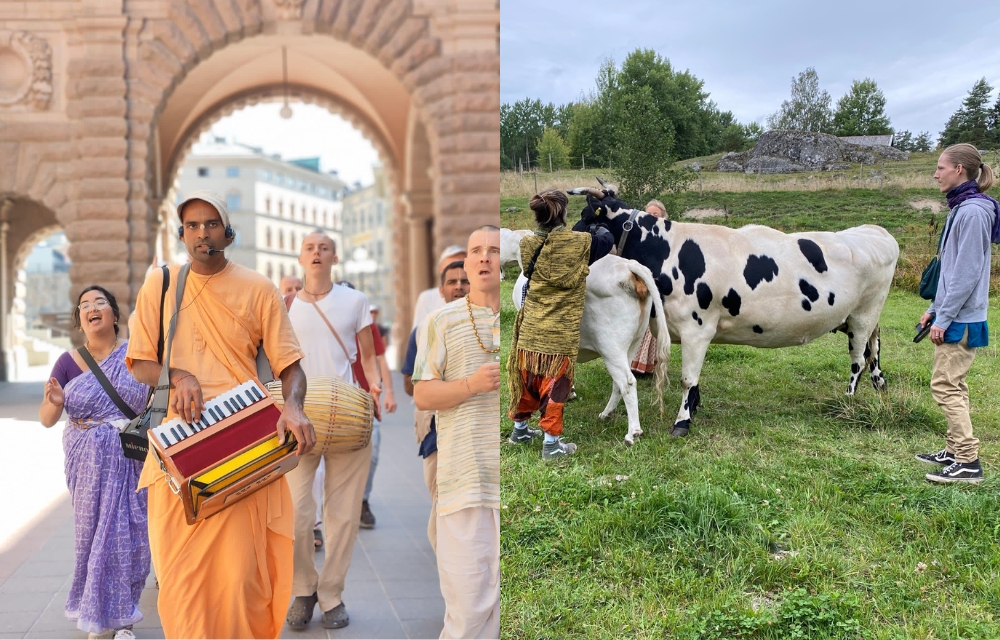
Biological generations can be considered a given. There is the parent-generation, the children, grandparents. So that X the mother of Y, for example, Y the father of Z, and Y and X are the parents of A. Maybe. While In many current debates, it seems a given as well that there is a Generation X, Y and Z, and again A, these generations are cultural constructs. The Generation X was an invention, was called out by author/artist Douglas Coupland and the question is: why did it resonate so much that it is not discussed whether the Generation Z exists, but what its markers are. It will be analyzed in this talk, which function the talk about generation has, how it is led and why it is useful – or not. And it will be asked what we are actually talking about when we talk about generations.

The current young generation faces a unique situation: the rising complexity and exceptionally high level of uncertainty of the current socio-economical, socio-ecological and geo-political situation result in a state of polycrisis. As a response to this situation the so called resilience research has come into prominence in both science and public administration over the last 10 to 15 years. Resilience researchers investigate the ways how an individual, a society or a socio-ecological system cope with adversities, how they inhabit uncertainty, and what factors help them to mitigate the harmful effects of potential traumatisation. The research focuses as well on the conditions of flourishing, feeling joy and being well. The pitfall of resilience thinking dwells in the possibility to treat resilience as simply an outgrowth of neoliberalisation. In this case, the young generation would only face the continuation of status quo. In this context young generation might meet many paradoxes: the accusation for being snowflakes together with the expectation of solving the most intense problems, right for securitisation a maximal safety together with extreme competitiveness, optimalisation together with intense sensitivity, self-advertising as a condition of existence together with global networking etc. In my presentation I will summarize the tropes connected to neoliberal interpretation of resilience and show under which conditions resilience can still offer a unique conceptual framework, research approach and ethical standpoint useful for the youth in the current situation.

The lecture will introduce the concept of inequality of educational opportunity (IEO) that is common in social stratification research. This concept will be discussed in light of the recent educational expansion in European countries, that has been launched by Bologna process in 2000. The aim of the lecture is to show what that all mean for young people, especially with regard to their family background, currently pursuing higher education. Special attention will be given to concept Gender-gap reversal (GGR) that is connected with recent educational expansion.

In previous generations, “subcultures” were considered to be avant-garde or marginal minorities in society, struggling with the “mainstream”. With the death of mainstream, however, we have all become participators in various mental “subcultures”, segmented subpublics. In this context we see the polarisation brought by culture wars as well as intensified generational conflict. Can we understand them using concepts developed for previous subcultures? Are we still able to understand other subcultures in our society – and are we able to understand ourselves?

When you think of young people in the workplace, what images come to mind? Are Gen Z-ers passive-aggressive disruptors, “quiet quitters,” the hope for the future, or some combination of the above? Understanding how groups and individuals perceive each other is important because expectations and perceptions shape human interaction. The symbolic interactionist perspective suggests that cultural perceptions are constructed symbolically and interactively. Media messages are a primary influence in this process, particularly in the absence of face-to-face encounters with individuals from another identity group. The impact of media on perception is even more pronounced in the digital age, with algorithms creating filter bubbles and echo chambers that tend to reinforce previous messages about other identity groups. In this interactive session, we will explore the perceptions of Gen Z in the workplace that are perpetuated through media messages. I will begin by presenting a research project that uses Tracy’s phronetic iterative approach to analyze the perceptions that are constructed through the representations in online messages of Gen Z in the workplace. After discussing the potential implications of these representations on workplace interaction, we will work together to generate strategies for promoting more effective cross-generational communication in the workplace.

The Hare Krishna movement is a new religious Hindu-inspired international movement that came to Sweden in the early 1970s. Members worship the Hindu god Krishna represented in deity form located at the temple. They adhere to strict principles such as prohibition of sexual relations outside of marriage, vegetarianism, non-gambling and non-intoxication. A vital part of a member’s life is the public chanting of mantras (sankirtan), and care of cows. Almvik’s Farm is a Hare Krishna village outside of Stockholm, Sweden. Members live in nuclear families but share responsibility for the temple and the cows. The village hosts 50-60 members, including children and youth of all ages. Many attend Waldorf schools in the vicinity but they generally do not “hang out” in town as older youth in Sweden do. The economies of the families vary so many have not been able to travel, or have travelled only to India, which is seen as pilgrimage. In the last 10 years, several youth projects in which the youth of the farm have been able to, by Erasmus funding, discover many different parts of Europe. They have travelled in all direction, thereby getting to know parts of Europe which they might otherwise not have visited. They have encountered different cultures, but also brought their own special culture with them, as they have been engaged in the congregational singing of mantras accompanied by traditional Indian instruments in the public space. Young persons in The Hare Krishna movement are seldom represented in public space. Debates about them usually constitute negative aspects about growing up in a controversial minority religion, and the young are virtually never invited into the debate. This presentation portrays youth of The Hare Krishna movement from Sweden’s experiences of bringing their unique voices and culture to the streets of Europe.

